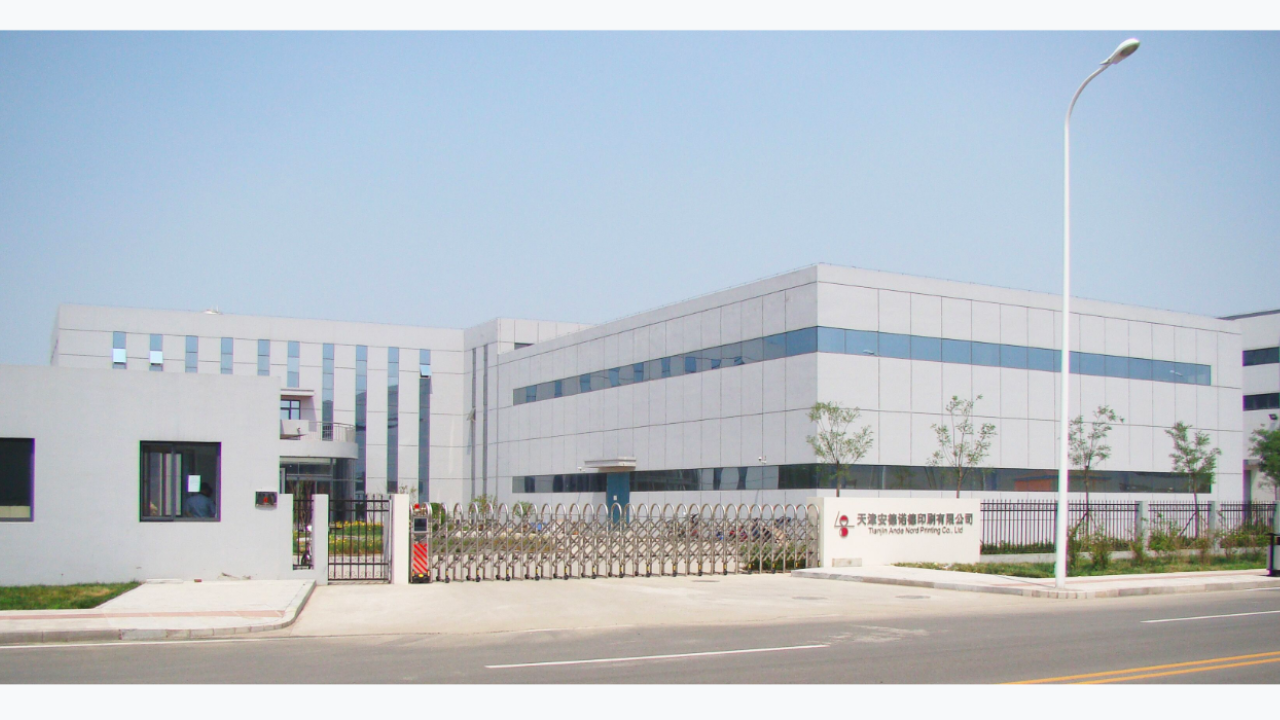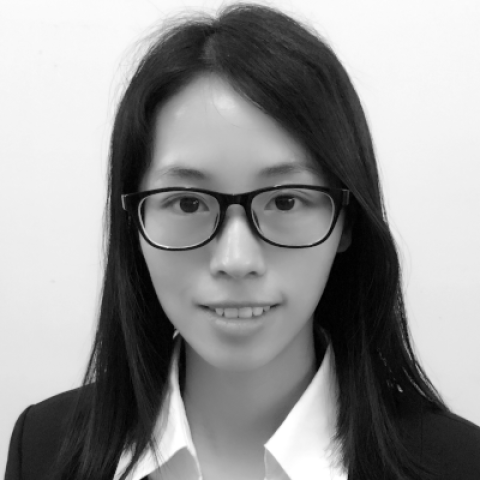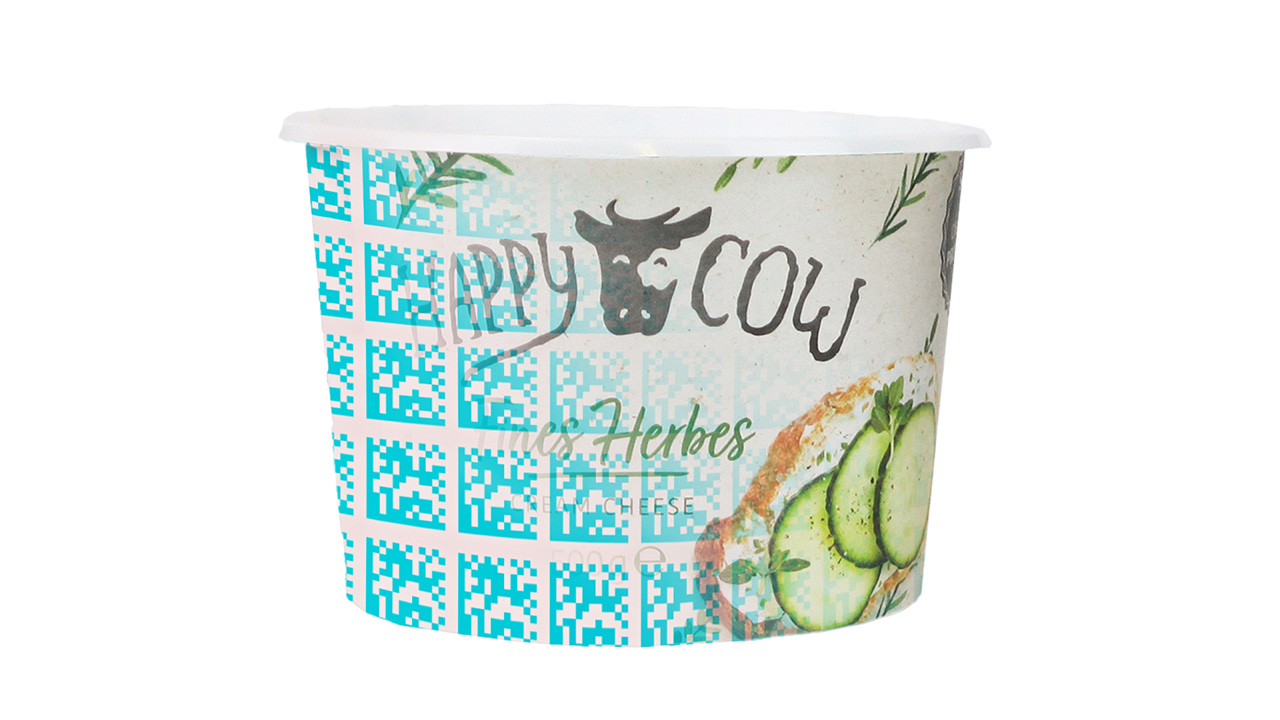Growth and optimization at Ande Nord

Tianjin Ande Nord was founded in 2002 in Tianjin Teda Industry Park in northern China. The company passed its ISO9001 international quality certification as early as 2004, then achieved both its ISO9001:2008 and ISO14001-2004 environment management system certifications in 2012.
Over the years, the company has been highly acclaimed by customers due to its exquisite label products and high-quality service.
From the beginning, Ande Nord has consistently adhered to its philosophy continuous improvement and a focus on service, extending its business all over the country by virtue of continued investment in leading-edge technology. The company has been chosen as most reliable supplier partner by many leading enterprises including Schneider Electric, Akzo Nobel, Tiens Group, Shimano industry and Kiwi. Indeed, Ande Nord has becomes the flagship of north China’s label printing industry.
Company history
The founder and general manager of Ande Nord, Li Bin, first moved into PS label production with a joint venture company back in 2005 with no more than a simple flat-bed letterpress. ‘At that time, PS label printing in the Tianjin market had just started,’ he tells L&L. ‘The consumer market had very simple requirements for PS label products, yet the profit was high, which is why so many people invested in the label printing industry.’
Following the company’s expansion, Li Bin established his own label printing company in 2000 and named it Ande Printing, the predecessor to Ande Nord. ‘The Chinese economy developed rapidly in the first decade of the 21st century, and the market required huge amounts of PS labels, so Ande grew very fast at that time.’
Between 2000 and 2008, Ande Printing moved plant four times. ‘We moved our plant on average every two years, so you can see how fast we were growing.’ In 2008 Li Bin decided to invest in land and build the company a wholly-owned workshop.
After three years spent in site selection, planning and construction, Ande moved to this new factory located in Jinnan Teda Industry Park in February 2012 and changed the name officially to Ande Nord. The new factory represented a total investment of 35m RMB ($5m USD) with a total production area of over 5,000sqm. It is located to the west of Jinnan Teda, which is close to the Tianjin port, Tianjin coastal international airport, and to the south to the Tianjin port petrochemical industrial area. To the west it is adjacent to the Xiqing district and to the north to downtown Tianjin. Such central positioning has endowed Ande Nord with excellent geographical advantages.
‘A new name promised a new beginning,’ recalls Li Bin. ‘We had to reassess our strategy. We were seeing increasingly fierce market competition and realized that the runaway development era of China’s label printing industry had gone. End users’ demands for high quality label printing and decorative finishing process were increasing while the label price was hardly growing and as a result label companies’ profits had declined sharply. After this market survey, we decided to optimize our product categories and focus on PS labels for high-end bottled water.’
With the strategy set, Ande Nord set about enhancing its productive strength with both hardware and software investments.
Currently Ande Nord owns two Gallus ECS 340 label presses, a Taiyo TLC-250 12-color rotary press, Taiyo TLC-250 6+1 rotary press with varnishing, an LPM-30 6-color press, Wanjie intermittent offset press, roll-fed screen press, high-speed die-cutting machines and other processing equipment. The company has a fully professional raw material inspection system and advanced plate-making equipment as well as an AVT automatic inspection system.
At the same time as improving its hardware, Ande Nord emphasized its ‘soft power’ growth. The company applies a continuous improvement philosophy and has obtained 84 patents, including for plate-changing equipment, for a double-sided multi-format printing machine and for a post-print special effects system. All these patents have been successfully applied to Ande Nord’s production, both improving internal processes and meeting customer demands for more diversified products.
After years of endeavor, Ande Nord’s PS label products have received extensive acceptance from both customers and industry insiders. Partners now include China’s most famous domestic bottled-water suppliers, such as Evergrande Spring, Quanyang Spring, Uni-President, Alkaqua, Yake, Tibet Glacial water and Changbai Spring. Now bottled-water labels account for 60 percent of total company business, with filmic labels accounting for 80 percent of that total.
ERP efficiency
‘Nowadays, label production equipment including pre-press, printing and post-press are being updated faster and faster, and operations are becoming more and more automated and intelligent, reducing to some extent excessive reliance on operators’ experience and individual skills, and lowering some labor costs,’ says Li Bin. ‘All this demands higher requirements for standardized management at a company level.’
As a private enterprise, Ande Nord has made great efforts in this direction. Its current ERP system has taken five years of continuous improvement to complete by Li Bin and his software engineers. ‘I believe label printing companies share some common characteristics with general enterprises, but also have their own specific requirements, such as the raw material test management, technical process management, ensuring color consistency and combatting print defects such as pinholing, streaking and so on using automated systems.’
By combining the ERP system with its own equipment and process procedures, Ande Nord has effectively raised productivity levels and lowered labor and management costs. The company has slimmed down from 100 people to the current 60+ staff, and annual output has also gradually increased to exceed 40m RMB in 2018 ($5.7m USD).
The ERP system has helped optimize the whole supply chain and actively helped the company win new orders. ‘At the time of a supplier audit by Uni-President three years ago, our score exceeded CCL Tianjin. This strengthened our determination and confidence to execute our standardized management strategy,’ says a proud Li Bin.
‘The successful application of our ERP system also solved our front-line employee turnover issues. We integrated job training into the ERP system, so new employees could obtain a systematic learning and start the job quickly. Even press operators could work independently within 1-2 months. This also affected our employees to some extent. They work more actively and steadily as they find they are not irreplaceable.’
Of course, Ande Nord also encountered some problems during the ERP application process – particularly training employees to form habits in the way they input data into the system, and setting up systems for timely and precise data input monitoring.
Li Bin understands that ERP management is a dynamic and progressive process that involves all aspects of the production system and requires constant improvement and upgrading as the company’s product standards are updated. The result is enhanced enterprise intelligence and practical implementation of Industry 4.0 protocols.
As for the excessive production capacity in China’s label industry, Ande Nord has been exploring new outlets. In the future, along with the increasing health consciousness by consumers, it believes bottled-water and milk products may well bring more development opportunities, reflected in increased label requirements. Therefore, Ande Nord will now explore the milk products PS label market, optimizing its product structure and improving technical processes, production control and management cost structure. The final aim is nothing less than building China’s most outstanding PS label printing enterprise.
Stay up to date
Subscribe to the free Label News newsletter and receive the latest content every week. We'll never share your email address.


